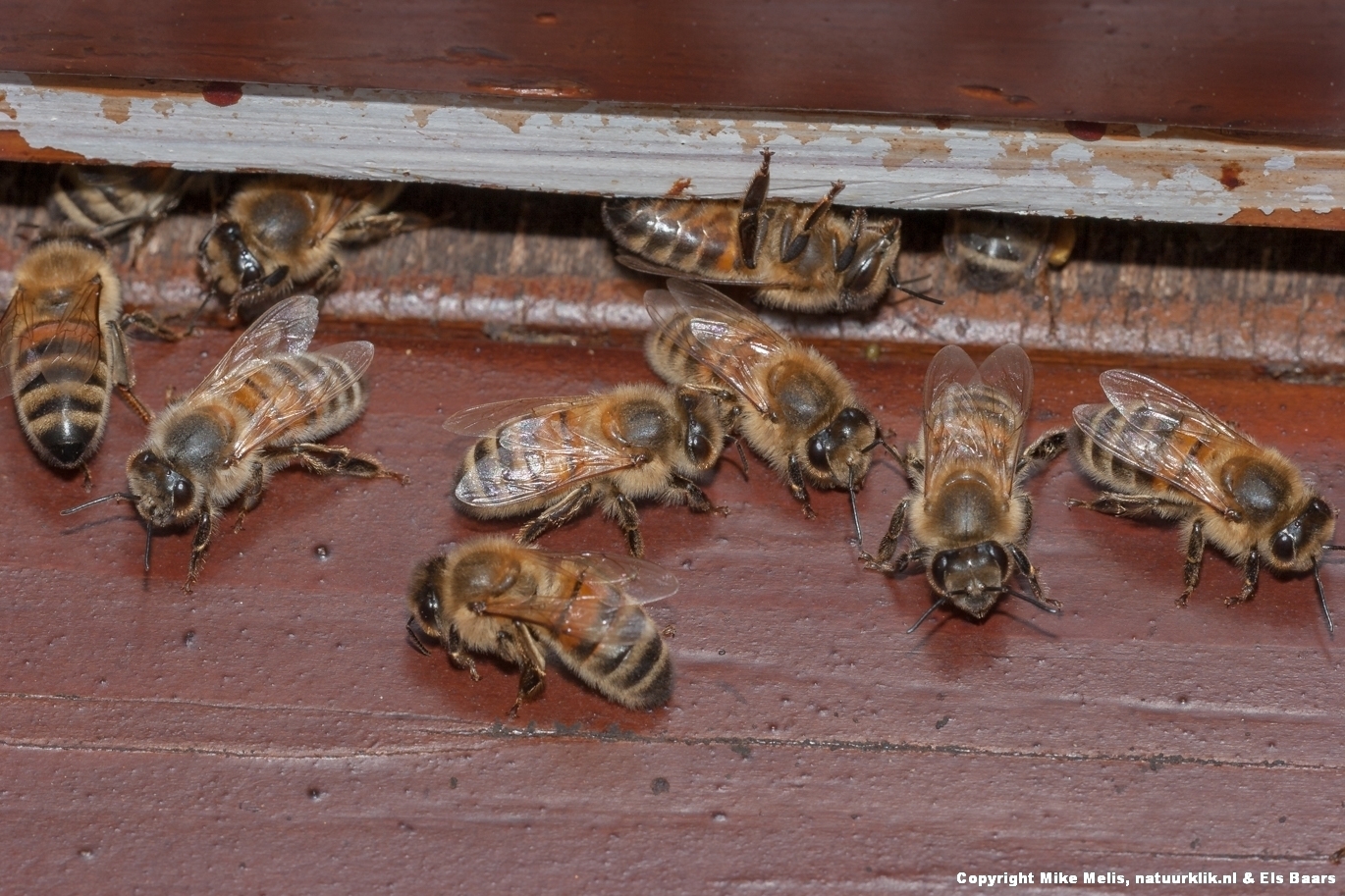When we think ‘bees’ we think ‘honey’. But did you realize that the hard-working bee is an essential element in producing a third of all the food we eat? These humming insects are really valued far less than they should be considering the work they do for us, because we often want more honey than the bees can actually do without. A long time ago the bees were almost threatened with extinction. Fortunately, this disaster was averted just in time. To do so, however, the bee had to pay a high price. Draw near and listen to my story:
In the beginning of our time there were many useful animals who generously shared their riches with people. For instance, the small wild sheep, the moeflon, gave wool to make warm clothes with. The hens were happy for people to have a share of their eggs. The bees gathered honey out of the flowers; some of this they allowed people to use for their pleasure.
This paradise-like beginning was followed by a period of greed an cruelty in the world. Some people were no longer satisfied with the share the animals gave them. They demanded everything the animals produced and made their lives a misery as a result. Not only in the spring, but also in the autumn they sheered the moeflons, so that animals suffered from the cold in the winter. Not a single egg was left behind in the nests of the hens, so that no more young birds were born. The bees’ entire honey supply was plundered leaving the young bees go hungry. Finally, driven to despair, all these useful animals put their heads together and called an emergency meeting. They decided to send an SOS message to the Fairy: “Dear Fairy, the humans are making our lives a misery through their greed. Help us, please!”
The fairy came at once and listened to the animals’ woes. Her sweet face darkened at what she heard and then she spoke: “I will give you weapons to defend yourselves with.” To the mouflons: “I will give you horns to protect yourselves with.” To the hens: “I will give you camouflage colouring so you cannot easily be seen.” To the bees: “I will give you a sting to fight off your aggressors.”
The animals were now so very happy with the fairy’s solutions and felt hopeful about the future. The greedy humans, however, were angry about the changes and tried to acquire the wool, eggs and the honey by force. At this the mouflons fled high up into the mountainous regions. The hens became shy and hid their nests under thorny brambles and undergrowth. As for the bees ….the queen of the bees flew to the snake and asked him: “O poisonous snake, the people are being so mean. May I have some of your poison, because we want to kill every human being who tries to steal honey from us, so that they can never again do it again.” The snake hissed: “No problem, I have more than enough poison.” Feeling satisfied at the outcome, the queen bee went back to her people with a supply of poison. When the fairy discovered what had happened, she flared up: “Every animal has the right to protect itself from being abused, but wanting to kill your aggressor simply goes too far. From now on bees will die as soon as they sting anyone with their sting. But I will be generous and grant you a buzzing sound which will frighten people away and make them keep their distance. This will make the humans think twice before stealing your honey and there will be almost no need for you to ever sting a human again.’
Ever since a bee will only sting if it has actually been threatened and the poison injected is painful but no longer deadly. Yet, the bee still pays the price of death for his deed.
There are many types of bees in the Netherlands. The most are solitary wild bees, which means that they live alone and lay their eggs in small holes (horned bees) or in the earth (tawny mining bees). The most well-known sort is the honey bee which is the type kept by beekeepers in hives. To pollinate many plants bees are essential – , without bees there would be no fruit such as apples and mangetouts. In industrial greenhouses swarms of bees are hired to pollinate the tomatoes or peppers.
Worker bees can cover long distances in the summer months, amounting on some days to even 250 kilometres. A bee’s wings wear out after about 800 km and then they die. In recent years many more bees have been dying than considered normal. If 10% used to die, this percentage has now risen to almost 25%! One reason is a reduced immune system which makes bees more vulnerable to viruses and mites. Probably a combination of factors is the root cause: such as agricultural pesticides and the reduction in the diversity of plants (biodiversity). That is why it is important that different types of bee-friendly flowers are planted in our parks, gardens, and on roadsides.
© Els Baars, Natuurverhalen.nl

